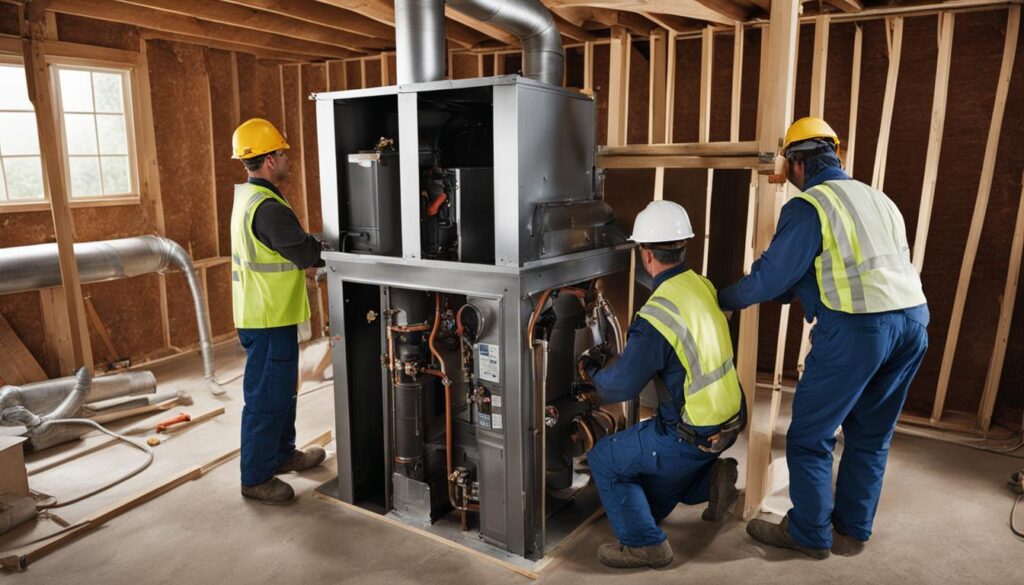When it comes to choosing the right furnace for your home, understanding the difference between gas and electric models is essential. Whether you’re building a new house or replacing an old heating system, knowing the pros and cons of each type can help you make an informed decision. Homeowners looking into Furnace Installation Kansas City, KS often face this exact choice, and it’s one worth exploring in detail. This guide breaks down the key considerations to help you determine which furnace suits your needs, budget, and lifestyle.
Understanding the Basics
What Is a Gas Furnace?
A gas furnace uses natural gas or propane as its primary fuel source. It burns this gas to create heat, which is then distributed throughout your home using ducts and vents. These systems are known for their strong heating capability and efficiency, especially in colder climates.
What Is an Electric Furnace?
An electric furnace, on the other hand, uses electrical resistance to generate heat. It warms up electric heating elements, and then a fan blows the heated air through your home’s ductwork. While often simpler and less costly to install, electric furnaces may come with higher monthly energy bills, depending on electricity rates in your area.
Installation and Upfront Costs
Gas Furnace Installation Costs
Gas furnace systems typically require a higher upfront investment. The cost includes the furnace itself, proper venting, and potentially gas line installation or upgrades. Installation is more complex and time-consuming due to the need for combustion exhaust systems.
Electric Furnace Installation Costs
Electric furnaces tend to be more affordable to install. The units are often cheaper, and the setup process is simpler since no fuel lines or venting systems are required. This makes electric models a preferred choice in homes without access to natural gas or in smaller properties where ductwork is already minimal.
Operating Costs and Energy Efficiency
Gas Furnaces: Long-Term Savings
Gas is generally less expensive than electricity, which means lower monthly heating costs for gas furnace owners. This makes gas systems more cost-effective over time, particularly in areas with harsh winters. Additionally, high-efficiency gas furnaces (up to 98% AFUE) are widely available, reducing fuel waste and maximizing performance.
Electric Furnaces: Simple but Costly Operation
Electric furnaces are often 100% efficient in terms of energy conversion because all the electricity used is turned into heat. However, this efficiency doesn’t necessarily translate to cost savings. In areas with high electricity prices, operating an electric furnace can be significantly more expensive than a gas model.
Climate Considerations
Best for Cold Climates: Gas Furnaces
For homeowners in colder regions like Kansas City, where winters can be quite chilly, gas furnaces are usually the better option. They provide faster, more robust heating, which is vital during freezing temperatures.
Suitable for Milder Climates: Electric Furnaces
Electric furnaces work well in regions with milder winters. In these areas, the higher electricity costs are offset by the furnace not needing to run as frequently. They are also a good fit for supplemental heating in specific rooms or small homes.
Maintenance and Lifespan
Gas Furnace Maintenance
Gas furnaces require more frequent maintenance due to their combustion process. This includes cleaning burners, checking heat exchangers, and inspecting vents for blockages or leaks. However, with regular care, a gas furnace can last 15 to 20 years.
Electric Furnace Maintenance
Electric furnaces are simpler machines with fewer moving parts and no combustion process, which means lower maintenance needs. With proper care, they can last up to 20 to 30 years, making them a long-term investment despite higher energy costs.
Safety and Environmental Impact
Gas Furnaces and Safety Concerns
Gas furnaces, while effective, do pose some safety risks. Gas leaks, carbon monoxide emissions, and combustion-related hazards require attention and preventative maintenance. Installing carbon monoxide detectors and having annual inspections are essential.
Electric Furnaces and Cleaner Energy
Electric furnaces are generally safer since there’s no combustion involved. They also offer a cleaner energy option, especially in areas where electricity is generated from renewable sources like wind or solar. However, in regions that rely on coal or natural gas for electricity, the environmental advantage is reduced.
Space and Noise Levels
Compact and Quiet: Electric Furnaces
Electric models are usually more compact and quieter during operation. This makes them ideal for homes where space is limited or where noise levels are a concern, such as apartments or townhomes.
Larger but Powerful: Gas Furnaces
Gas furnaces tend to be larger and can produce more operational noise, especially if not well-maintained. However, their robust heating performance often outweighs these minor inconveniences.
Final Thoughts: Which One Should You Choose?
Choosing between a gas and electric furnace depends on several factors: your budget, energy availability, climate, and personal preferences. If you’re located in an area with access to natural gas and face long, cold winters, a gas furnace may offer the best performance and value over time. On the other hand, if you’re looking for a safer, easier-to-maintain option with lower installation costs—and your winters are mild—an electric furnace could be a better fit.
When considering Furnace Installation Kansas City, KS, it’s wise to consult with a professional HVAC technician. They can evaluate your home’s energy needs, layout, and local utility rates to recommend the most cost-effective and efficient solution.
Key Takeaways
- Gas furnaces offer strong, efficient heating and lower operational costs in cold climates but require more upfront investment and maintenance.
- Electric furnaces are easy to install, safer, and lower-maintenance, but may lead to higher monthly energy bills.
- Your local climate, energy prices, and the existing infrastructure of your home are crucial factors in making the right choice.
- Always get quotes and professional advice before deciding on a system for your home.
By weighing the pros and cons of each system and understanding how they align with your household needs, you can make a confident and informed decision when it comes to heating your home efficiently and affordably.

